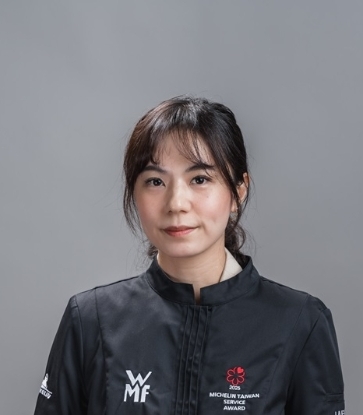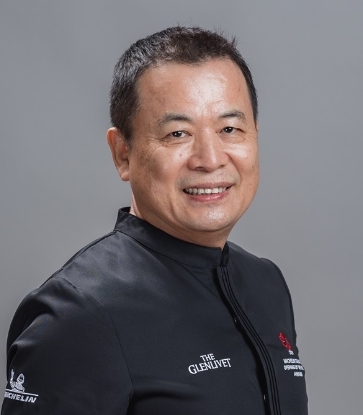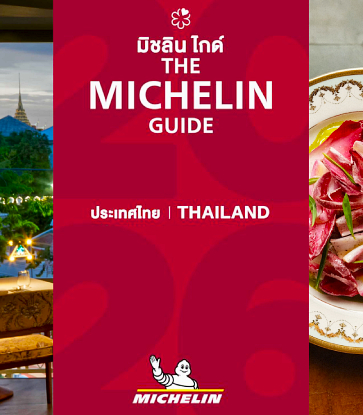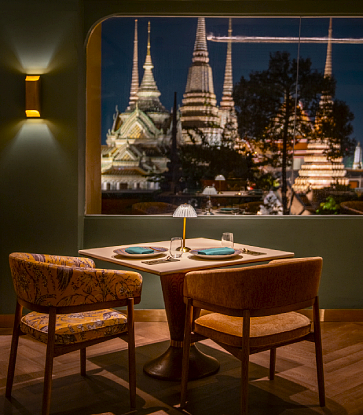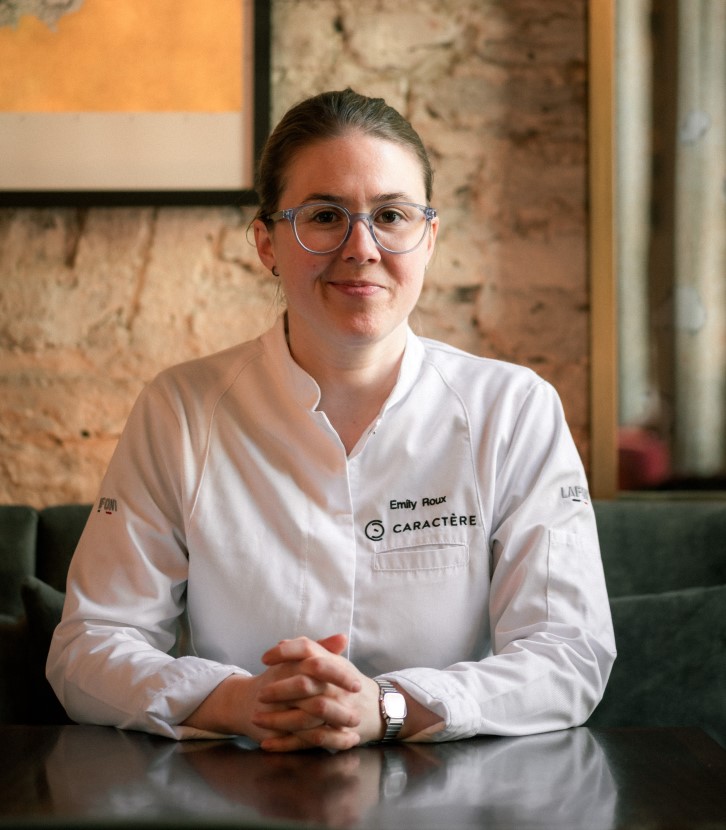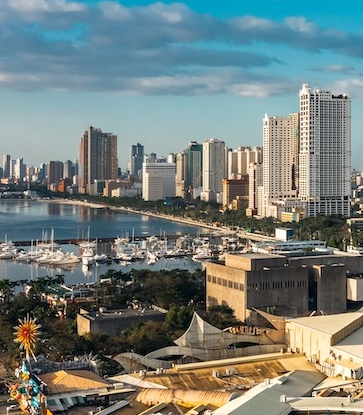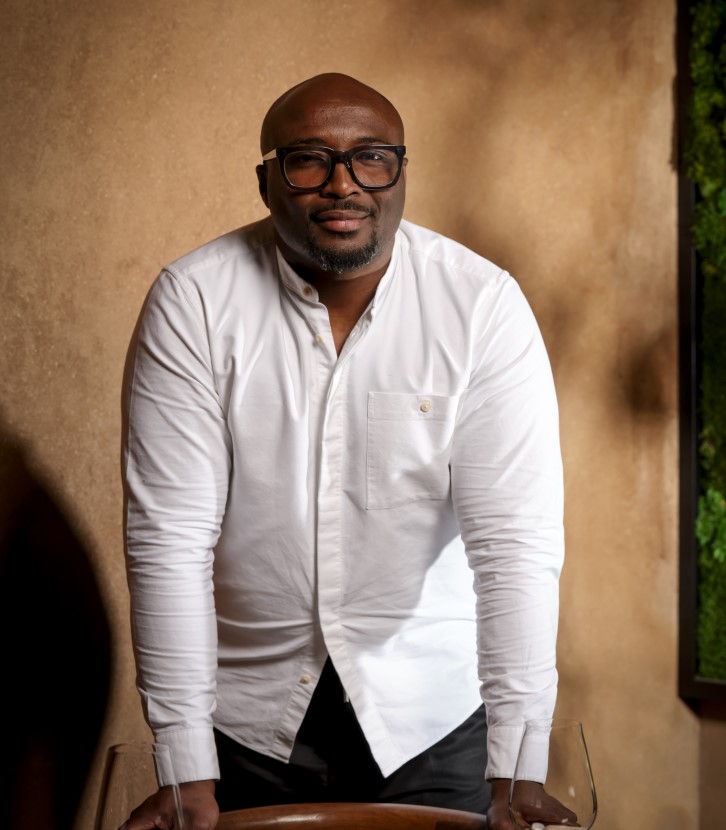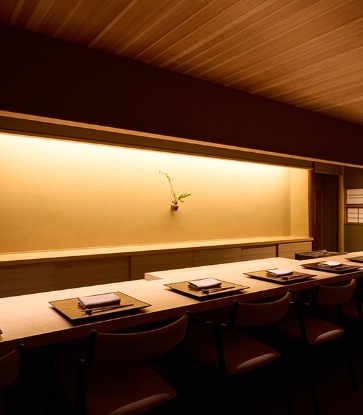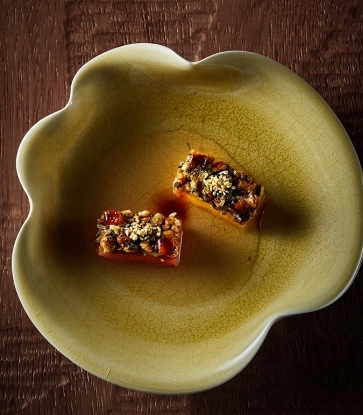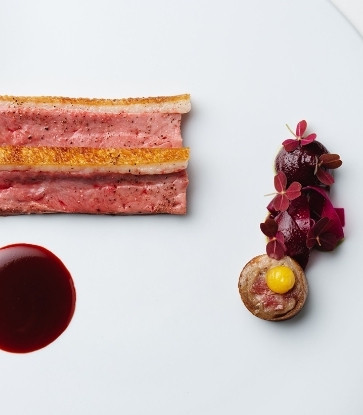“I’m constantly reminding myself that I can no longer view everyone as the “kids” they were 10 years ago…” André Chiang, founder of the two-MICHLEIN-starred restaurant RAW, expressed this sentiment on Facebook, his tone imbued with a gentle parental warmth. “Over the past decade, so many [chefs] of the new generation have been trained at RAW. They have grown and branched out from here to become the pillars of Taiwan’s top restaurants, or have forged their own paths. When I look around, I observe these young talents in silence, watching them emerge as significant players at different corners of the culinary world. It brings me nothing but joy and comfort.”
In a shocking announcement made at the end of July 2024, Chiang declared that at the restaurant’s 10th anniversary, he would retire from the frontline. December 31 2024 would mark the final day of RAW in operation.
RELATED: Life Beyond the Olive Tree: André Chiang’s Homecoming Chapter


The restaurant has also launched its final seasonal menu, “The Last Dance” – a reflection of RAW and André Chiang’s journey traversing from Europe to Asia, from ocean to land, from Singapore to Taiwan, and from technique to terroir. (Left image: “To my team and myself” from The Last Dance, signifying that the team is his very essence. © RAW)
A few months ago, a key figure from the early days of RAW – chef Zor Tan of the one-MICHELIN-starred restaurant Born in Singapore – returned for a joint dinner collaboration.
In November, the restaurant announced an exciting initiative, inviting former RAW team members for a “homecoming” in the final two months of service. The already confirmed lineup features nine groups of talented chefs, including Ed Lin from one-MICHELIN-starred restaurant Sur- and the winner of MICHELIN Guide Taipei & Taichung 2021 Young Chef Award; huist’s Tim Chen, the recipient of the MICHELIN Guide Taiwan 2024 Young Chef Award; as well as his wife Meimei Lin, the former pastry chef at RAW; and chef Nick Sor from renowned open-flame restaurant FirePlay.
They are each presenting one dish on the menu as a tribute to RAW. Alongside chefs, the front-of-house team members who previously served at RAW are also returning for this epic “last dance”.
RELATED: An Antidote to Homesickness: André Chiang and His Beef Noodle Soup

A Powerful Reservoir of Talents
Having established countless milestones over the past decade, RAW is one of the benchmark restaurants of Taiwan’s fine dining scene. It has fostered discussions around the positioning and identity of Taiwanese flavours; it refreshes its menu six times a year, exploring and experimenting with the connections between Taiwanese flavours and the world. From Virgilio Martinez to Albert Adrià, the restaurant has invited international guest chefs to inject vitality, inspire and enrich Taiwan’s culinary landscape.

A “Hyperbolic Time Chamber” of Growth
Chef Tim Chen of huist likens his two years at RAW to the “Hyperbolic Time Chamber” from Dragon Ball. In the manga, a year spent inside the chamber equates to just one day in the outside world, allowing individuals to accumulate a year’s worth of training within a short period of time.
“At RAW, the demands for precision, focus, and technical skill are exceptionally high. For each dining event or menu, we had to avoid showcasing the same techniques used in previous menus, which was a real challenge on different fronts,” he reminisces. (Chen returns to RAW to cook © RAW)
Despite serving a substantial number of 60 to 70 guests per service, RAW maintains the sophistication and quality of fine dining, considering every detail with meticulousness.
RAW boasts a well-planned kitchen, where each dish is the result of intricate teamwork.

“If a dish requires the work of five sections, and each section is handled by two to three people, this means a total of 15 people are involved in completing one dish,” Chen explains. “If I’m responsible for the meat, then there are 14 people waiting for me. That creates a certain kind of pressure. If something goes wrong, it can disrupt the flow for everyone else. Similarly, if the sauce is poorly made, it affects the juiciness of my meat, then we have to decide whether the meat requires reheating, and so on…” When each dish is broken down into finer parts, the interconnectedness of each component becomes more crucial. The work may seem straightforward, but it demands high precision and standards.
RELATED: The Evolving Flavor of Taiwan’s Cuisine Through the Eyes of 4 MICHELIN-Starred Restaurant Chefs

For him, the greatest inspiration from RAW has been learning to view Taiwanese cuisine from different perspectives. Currently at huist, he combines Western techniques to reimagine home-cooked comfort dishes. This is why he brought huist’s cured pork back to RAW: the pork belly from Yunlin is marinated with litsea cubeba, black pepper, and garlic for three to four days before being pan-fried until crispy. The litsea cubeba’s citrus and lemongrass aromas can cut through the greasiness of the pork belly, which is paired with sourdough bread. A sour sauce made with Belgian beer replaces the white vinegar that typically accompanies thinly sliced cured pork. The chunk of pork belly is served whole, inviting diners to indulge in this hearty meat dish.

“I have made this appetiser over a thousand times, so I still remember it well,” he laughs. “It is the first bite and first flavour offered by RAW to its guests in Taiwan.” ("Left image: Lin took a photo with Chiang before leaving RAW, provided by Ed Lin.)
Lin joined RAW during its preparatory phase, and this was his first official job after graduation and internship. At that time, RAW had just opened its doors. André Chiang was always present, so everyone could feel the pressure and made sure to be fully committed to their responsibilities.

Even on his days off, Lin found himself thinking about the restaurant. “Those days felt like ‘thousands of people crossing a narrow bridge’, with everyone eager to move up. Once we completed our own tasks, we were keen to learn more and sought the chance to observe other roles within the restaurant.” This intense atmosphere left a deep impression in him.
He also remembers the high-calibre dining events they executed together. His last event before departing was a collaboration with Tokyo’s two-MICHELIN-starred and green-starred restaurant Florilège. At the time, the current head chef of the two-MICHELIN-starred restaurant logy, Ryogo Tahara, served as the sous-chef of Florilège. He accompanied chef Hiroyasu Kawate, and was assigned to the same team as Lin.

And just like that, a decade has passed.
Regarding the impending closure of RAW, he feels a sense of loss, even thought it was somewhat expected. “Although I no longer work there, having that benchmark for me to take as a reference offers a certain kind of spiritual comfort, but now it’ll be gone,” he says. In particular, the level of investment and scale of RAW are rare in the industry, so it is difficult to predict whether any restaurant today possesses the same awareness or can sustain such an operation for long.
“The owner knows that this kind of establishment won’t be profitable. Independently operated restaurants like ours cannot match such a scale, so we can only appreciate and treasure what RAW represents,” he notes. Looking back over the past 10 years, he believes that despite the ever-changing F&B trends, fine dining still carries the responsibility of being a trailblazer. Fine dining restaurants are the first to explore how this industry can evolve; what more can be done; and the contributions and responsibilities—spiritually, socially, and internationally—that extend beyond food.
For this homecoming, Lin plans to bring his entire team along. “I want them to see what proper standards look like. This is something that I cannot afford,” he says. “It’s important for them to experience it first-hand, to be there to witness the final moments.”

The Next Decade: the Evolution of the Talent Incubator
André Chiang once said that he envisions RAW as not just a restaurant, but a platform for nurturing Taiwanese talent. He wishes to place not only Taiwanese cuisine and flavours onto the global stage, but also Taiwanese talent.
To achieve this, it is essential to train talent to world-class standards—not merely instructing them on how to cook or providing recipes, but allowing them to understand what world-class standards and systems entail. This includes everything from division of labour and communication to cleanliness and personal presentation, which must be implemented at all times.
The flourishing and successful careers of RAW’s alumni stand as the perfect testament to this effort.
RELATED: From Generation to Generation: Mentor-mentee Chefs of the MICHELIN Guide Taiwan 2023

And the next decade will be another pivotal moment for transformation.
"As the years have gone by, the social status of Asian chefs has significantly improved compared to 15 to 20 years ago. However, I see a severe lack of professional education, training, creativity, and global vision among young chefs, which has become the weakest link in their growth. Our culinary urgently needs solutions," he shares in a press conference to announce his retirement and the last day of RAW.
Especially during and after the pandemic, he felt that while Taiwan’s F&B scene is thriving, there is a concerning lack of succession and a clear direction for the coming years. Those determined to stay in the F&B industry are faced with daily operational pressures and demands, making it difficult to engage in systematic learning.
Chiang, who resets his life goals every decade, asserts that in the next 10 years, he will continue to focus on nurturing talent. Next year, RAW will transform into a culinary academy, welcoming graduates and newcomers, as well as chefs who feel lost or overwhelmed in their careers.
“Taiwan doesn’t need one more or one less restaurant. What Taiwan lacks is whether or not we can cultivate more and better talent in the next generation.” Chiang has set a goal for himself and the Taiwanese F&B industry to push forward with renewed enthusiasm in embracing the next decade.
hero image© RAW
RELATED: Eat Taiwanese Across The World





